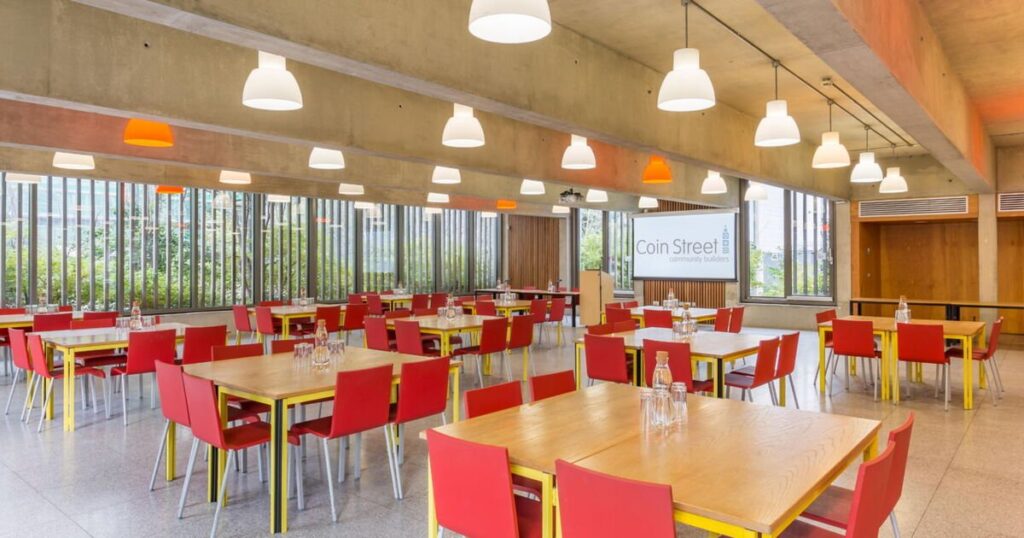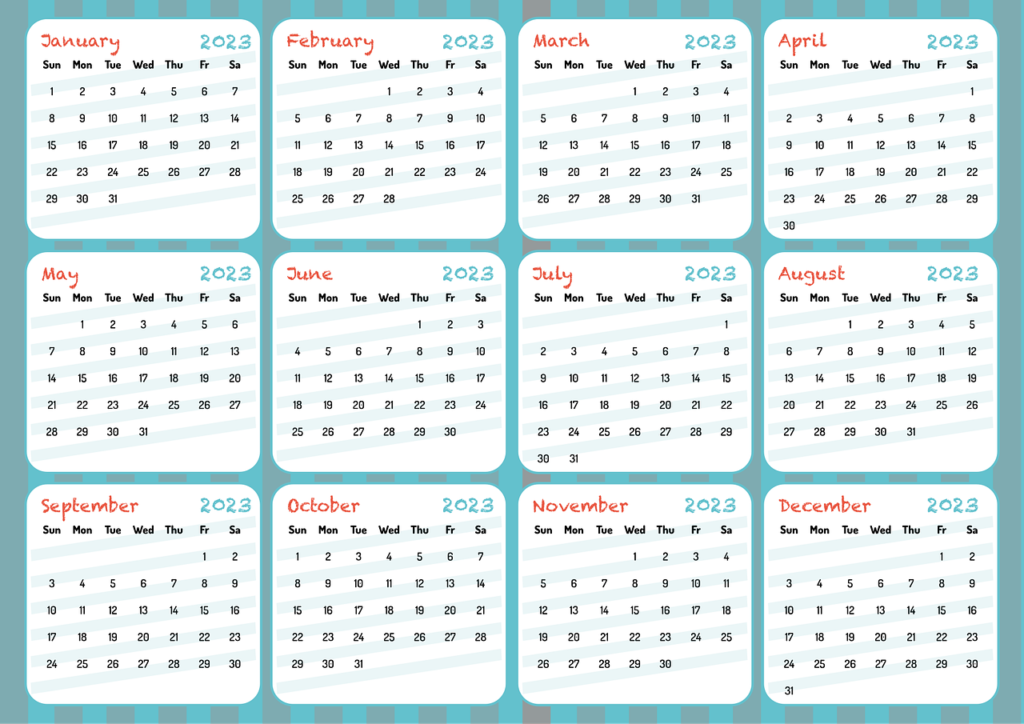Planning a conference on a budget

Planning a conference on a budget requires careful consideration and strategic decision-making to ensure that you can achieve your objectives without overspending. Here are some tips to help you plan a successful conference while keeping costs under control:
Set clear goals and objectives:

Define the purpose of the conference and the outcomes you want to achieve. Having a clear vision will help you prioritise expenses and focus on what truly matters.
- Ask yourself and your team why you are organising this event. Is it to raise awareness about a cause, generate leads for your business, provide networking opportunities, educate attendees, or celebrate an achievement? Clearly define the overriding purpose of the event.
- Identify Specific Objectives: Once you have a clear purpose, break it down into specific, measurable objectives. Each objective should be specific, realistic, achievable, and time-bound. For example, if your purpose is to raise awareness about a cause, a specific objective could be to attract 500 attendees and secure media coverage in at least three local newspapers.
- Know Your Target Audience: Understand who your target audience is and what they hope to gain from attending the event. Tailor your objectives to meet their needs and expectations. If you have multiple segments of attendees, consider setting specific objectives for each group.
- Use the SMART Framework: Apply the SMART criteria to your objectives to make them more effective:
- Specific: Clearly define what you want to achieve.
- Measurable: Determine how you will measure your success.
- Achievable: Ensure that your objectives are realistic and attainable within the given resources.
- Relevant: Ensure that your objectives align with the overall purpose of the event.
- Time-bound: Set a deadline or timeline for achieving each objective.
- Prioritise Objectives: If you have multiple objectives, prioritize them based on importance and feasibility. This will help you allocate resources more efficiently and focus on what matters most.
- Collaborate with Stakeholders: Involve key stakeholders, such as team members, sponsors, or partners, in the goal-setting process. Their input and perspectives can enhance the clarity and effectiveness of your objectives.
- Create an Event Plan: Develop a comprehensive event plan that outlines all aspects of the event, including logistics, marketing, budget, and programming. Ensure that each element of the plan contributes to achieving your defined objectives.
- Regularly Review and Revise: Throughout the planning process, continuously review and refine your goals and objectives. Be open to adjusting them based on new information, feedback, or changing circumstances.
- Communicate Objectives to the Team: Ensure that everyone involved in the event planning process understands the goals and objectives. This will help align efforts and keep everyone motivated and focused on the desired outcomes.
- Measure Success: After the event, assess how well you achieved each objective. Use data and feedback to evaluate your success and identify areas for improvement in future events.
Create a detailed budget:

Outline all potential expenses, including venue hire, catering, speakers, marketing materials, audio-visual equipment, and any other necessary items. Be realistic and research actual costs to avoid unexpected surprises.
- Gather Information: Start by collecting all relevant information about the event. This includes the event’s purpose, date, duration, expected number of attendees, and any specific requirements or special considerations.
- Identify Categories: Divide your budget into different categories to organize expenses efficiently. Common categories include venue, catering, marketing, staff, speakers/entertainment, audio-visual equipment, decorations, insurance, permits, and contingency.
- Research Costs: Research and obtain quotes from vendors, suppliers, and service providers for each category. Reach out to multiple sources to ensure you get the best prices and options. Consider both fixed costs (e.g., venue rental) and variable costs (e.g., per attendee catering fees).
- Allocate Funds: Determine how much money you have available for the event. If you have a specific budget limit, allocate funds to each category accordingly. Be realistic and be prepared to adjust allocations as needed.
- Account for Miscellaneous Expenses: Include a buffer for unexpected or miscellaneous expenses, typically around 10-15% of the total budget. This will help you handle unforeseen costs without compromising the event’s quality.
- Use Event Planning Tools: Consider using event planning software or budget templates to facilitate the process and ensure you don’t overlook any expenses.
- Track and Manage Expenses: Keep a close eye on your expenses throughout the planning process. Record all costs incurred and regularly update your budget spreadsheet to track how you are doing against the allocated amounts.
- Negotiate with Vendors: Don’t hesitate to negotiate with vendors to get better deals or discounts. Many suppliers are open to negotiating prices, especially if you can offer repeat business or promote their services.
- Be Realistic and Flexible: Be mindful of your budget constraints and make adjustments if needed. If you find that certain expenses exceed your budget, look for areas where you can cut costs without sacrificing the event’s quality.
- Review and Reevaluate: Periodically review your budget and assess whether you are on track or need to make changes. As the event progresses, you may encounter unexpected expenses or changes in requirements that require adjustments to the budget.
- Communicate the Budget: Ensure that all relevant stakeholders, such as event organizers, sponsors, and team members, are aware of the budget and their roles in managing expenses.
- Plan for Post-Event Expenses: Remember to factor in post-event costs, such as thank-you gifts for speakers or vendors, and any required post-event reporting or documentation.
Find an affordable venue:
Look for venues that offer reasonable rates or consider non-traditional locations such as community centres, local universities, or co-working spaces.
- Define your budget: Determine the maximum amount you are willing to spend on the venue. This will help you narrow down your options and avoid overspending.
- Identify your needs: Make a list of essential requirements for the venue, such as the event date, capacity, location, facilities, and any specific features you need.
- Consider non-traditional spaces: Look beyond traditional event venues, such as hotels or conference centres. Consider places like community centres, parks, art galleries, libraries and local halls
- Contact local event planners: Reach out to event planners or organizers in your area and ask for recommendations for affordable venues. They might have insider knowledge about lesser-known but budget-friendly options.
- Check with your network: Ask friends, colleagues, or acquaintances if they know of any affordable venues or have connections to potential spaces. Personal referrals can lead to hidden gems.
- Negotiate the price: Once you’ve found a venue that meets your needs, try negotiating with the venue manager or owner or ask your venue finder to help with this. Depending on the time of year or day of the week, they may be willing to offer discounts or special deals.
- Consider off-peak times: Holding your event during less busy times or weekdays might help you secure a better deal as venues often have lower demand during these periods.
- Compare packages: Some venues offer package deals that include catering, audiovisual equipment, and other services. These packages can be cost-effective, so compare the overall value they offer.
- Look for inclusive venues: Some venues may have minimal rental fees or offer reduced rates if your event aligns with a cause or community initiative.
- Consider local businesses: Reach out to local restaurants, cafes, or breweries with event spaces. They might be open to hosting your event, and their prices may be more competitive than larger venues.
- Check for hidden costs: Inquire about any additional fees, such as cleaning, security, or insurance, that might be added to the venue rental cost.
- Be flexible with the date: If possible, have a few date options in mind, and ask the venue if they offer discounted rates for certain days or months.
- Book in advance: Securing a venue well in advance can give you more bargaining power and increase your chances of finding an affordable option.

Choose the right date and time:
Opt for off-peak days and times when venue costs and accommodation prices tend to be lower. Avoid scheduling the event during peak tourist seasons or major holidays.

Sponsorship and partnerships:
Seek out sponsors or partners who can provide financial support or in-kind donations. Sponsors can also help with marketing and promotion, extending the reach of your event.
Utilise local talent:
Look for speakers, entertainers, and vendors within the local community. Hiring local talent can often be more cost-effective than bringing in speakers from afar.
DIY marketing and promotion:

Use social media and email marketing to promote your conference instead of relying solely on expensive advertising campaigns. Create eye-catching graphics and content to engage potential attendees.
- Define Your Target Audience: Determine who your event is aimed at and tailor your marketing message accordingly. Understanding your audience will help you choose the right platforms and communication style.
- Create a Marketing Plan: Outline a detailed plan that includes your marketing goals, strategies, budget, and timeline. This plan will serve as a roadmap for your marketing activities.
- Utilize Social Media: Social media platforms are powerful tools for event promotion. Create engaging content related to your event, including posts, images, videos, and stories. Use relevant hashtags and encourage attendees to share the event with their networks.
- Set Up an Event Page or Website: Create a dedicated event page or website with all the necessary details, such as date, time, location, agenda, speakers, and ticket information. Make it visually appealing and easy to navigate.
- Email Marketing: Build an email list and send out newsletters or updates about the event to potential attendees. Offer early bird discounts or exclusive content to incentivise sign-ups.
- Partner with Influencers or Collaborators: Reach out to influencers or relevant businesses/organisations in your niche and collaborate with them for cross-promotion. This can help you reach a wider audience.
- Create Promotional Materials: Design eye-catching posters, flyers, and banners to distribute in local businesses, community centers, and high-traffic areas. Ensure they contain essential event details and a call-to-action.
- Run Contests or Giveaways: Organize online contests or giveaways to generate buzz and encourage people to share your event with their friends and followers.
- Utilise Local Media: Send press releases and event announcements to local newspapers, radio stations, and TV channels. They may cover your event in their news or event sections.
- Host Webinars or Teasers: Conduct webinars or teaser events to provide a glimpse of what attendees can expect at the main event. This can help build anticipation and interest.
- Leverage Event Directories: Submit your event to online event directories and community calendars. Many of these platforms offer free listings and can increase your event’s visibility.
- Encourage Word-of-Mouth: Ask attendees and supporters to spread the word about the event. Word-of-mouth recommendations can be powerful in attracting more participants.
- Use Eventbrite or Meetup: List your event on popular event platforms like Eventbrite or Meetup. These platforms have a wide user base and can help you reach a broader audience.
- Track and Analyse Results: Monitor the effectiveness of your marketing efforts by tracking ticket sales, website traffic, social media engagement, and other metrics. Use this data to refine your strategies for future events.
Early bird registrations:
Offer discounted early bird registration rates to incentivise attendees to sign up early. This can help you secure funds upfront to cover initial expenses.
Virtual or hybrid options:
Consider offering virtual attendance options for those who can’t make it in person. Virtual conferences can reduce costs related to venue, catering, and travel.
Minimise printed materials:
Utilise digital platforms for sharing conference materials, agendas, and handouts. This reduces printing costs and is more environmentally friendly.
Volunteers and student help:
Enlist volunteers or work with local colleges and universities to get students involved. They can assist with various tasks, helping to cut down on labour costs.
Negotiate with vendors:
Always negotiate with vendors for better prices or additional services. They may be willing to offer discounts or package deals, especially if you can guarantee future business.
Catering options:
Choose cost-effective catering options, such as buffet-style meals or working with local restaurants that offer catering packages.

Measure and adapt:
Keep track of your budget throughout the planning process and make adjustments as needed to stay within your financial constraints.
By following these strategies, you can plan a successful conference without breaking the bank. Remember that creativity and resourcefulness can go a long way in creating a memorable event on a budget.
Related Posts

A Corporate Christmas Party with a Difference
Do you dread the company’s Christmas party invitation arriving on your desk? Tired of soggy sausage rolls, lukewarm turkey, and limp vegetables, coupled with making small talk over a glass…

Electric Flamingo Christmas Party
In the dark days of winter, London becomes a canvas of sparkling lights, festive decorations, and joyous celebrations. Among the myriad of events, the Electric Flamingo Christmas Party at The…

Le Sorelle Barge in London
Discover an unparalleled blend of historical charm, luxury, and modern comfort aboard Le Sorelle, an extraordinary 1950s barge conversion nestled in the heart of Canary Wharf. Crafted with reclaimed wood…

Finding the Perfect Gallery Venue in London
Finding the perfect gallery venue for an event offers an inspiring environment that can greatly enhance the creative experience. These spaces are specifically designed to showcase artistic work, providing optimal…
